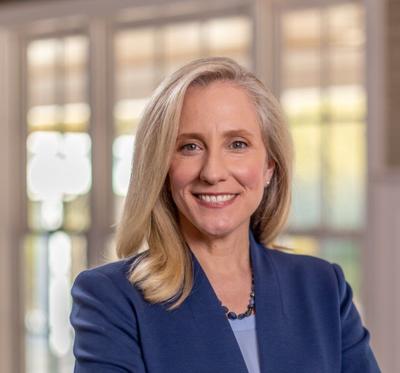Across our commonwealth, too many families are struggling to keep up with rising costs and fear that their dream of building a life here in Virginia is slipping out of reach.
I have heard it from Virginians — in all corners of the commonwealth — since I first launched my campaign for governor.
High energy costs are part of the problem. Families are budgeting more and more each month to pay their utility bills, and small business owners are worried that rapidly increasing energy demand will hurt Virginia’s economy. The problem is particularly acute in Southwest Virginia, where the average monthly residential power bill has increased by about $50 in the past three years.
Despite these challenges, I believe that Virginia has the opportunity to become the nationwide leader in developing affordable energy that lowers costs for consumers, drives economic growth, and creates new jobs. But we need a clear, commonsense plan to do so.
People are also reading…
That’s why I recently announced my plan to lower energy costs and put Virginia on a path toward greater energy independence. Alongside my priorities to lower health care and housing costs, this plan offers a comprehensive approach to making Virginia more affordable for families, workers and small businesses.
As governor, I’m ready to work with anyone — regardless of party — to bring prices down. With chaos in Washington threatening to make life more expensive for families in the Â鶹´«Ã½¹ÙÍø area and throughout our commonwealth, Virginians deserve leaders who will put partisan politics aside and work together to offer families real relief.
I believe making Virginians’ utility bills more affordable starts with increasing local generation here in the commonwealth. We should support our nation-leading offshore wind industry and encourage the businesses that make turbine components to move their operations in Virginia. We should also incentivize solar energy projects in commonsense locations — such as abandoned mine sites, former industrial sites, rooftops, and parking lots — and in locations where the community would benefit from lower energy costs, such as schools and public buildings.
At the same time, we must continue to invest in the next-generation of energy technology — including small modular nuclear reactors, fusion, geothermal and hydrogen energy sources. Virginia’s colleges and universities are some of the best in the world, and we should encourage more partnerships with them to spur innovation.
To further drive down overall costs, I will direct my administration to address existing regulatory hurdles that drag out the timeline to build new projects. We should start by making sure Virginia’s regulatory agencies are processing permits efficiently, but we should also address issues with our regional transmission organization, PJM — because as Gov. Glenn Youngkin rightly pointed out, the lack of transparency at PJM is hurting energy affordability in Virginia.
As governor, I will also take decisive action to protect Virginians from sudden spikes in their energy bill, so families don’t have to worry that a single heat wave or cold front will break their budget.
One way we can do this is maximizing the use of cost-effective energy efficiency options, like weatherization. Increasing home weatherization can reduce Virgininians’ bills, cut down on wasted electricity, and support local jobs — all while making homes warmer during the winter and cooler in the summer. We can also smooth spikes in energy demand by investing in energy storage, so that we can store energy at low-use times to ease the burden on the grid and lower costs when demand is high.
And finally, we need to make sure data centers in our commonwealth don’t drive up energy costs for everybody else. Data centers are an important source of local tax revenue for many communities, and I will work to develop a statewide strategy so communities that want data centers can bring them there, without straining statewide resources such as water supply. But I also firmly believe that data centers should be paying their fair share for energy they use, including the costs of new electricity generation and transmission built for them.
I know every community in the commonwealth is different. And come January, my administration will focus on providing local leaders with better tools to assess new energy projects, so they can make the best decisions for their communities.
Virginia deserves a Governor who not only talks about problems, but someone who endeavors to fix them. In Congress, I built a record of working with both parties to find common ground and get things done for Virginia. And as governor, I’m ready to take that same approach to lower energy costs for Virginia families.















